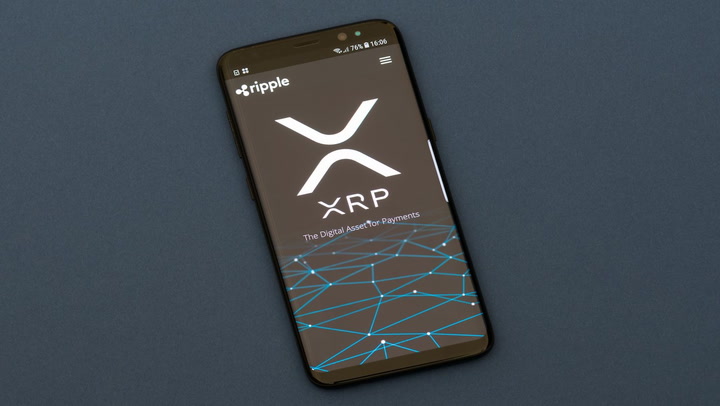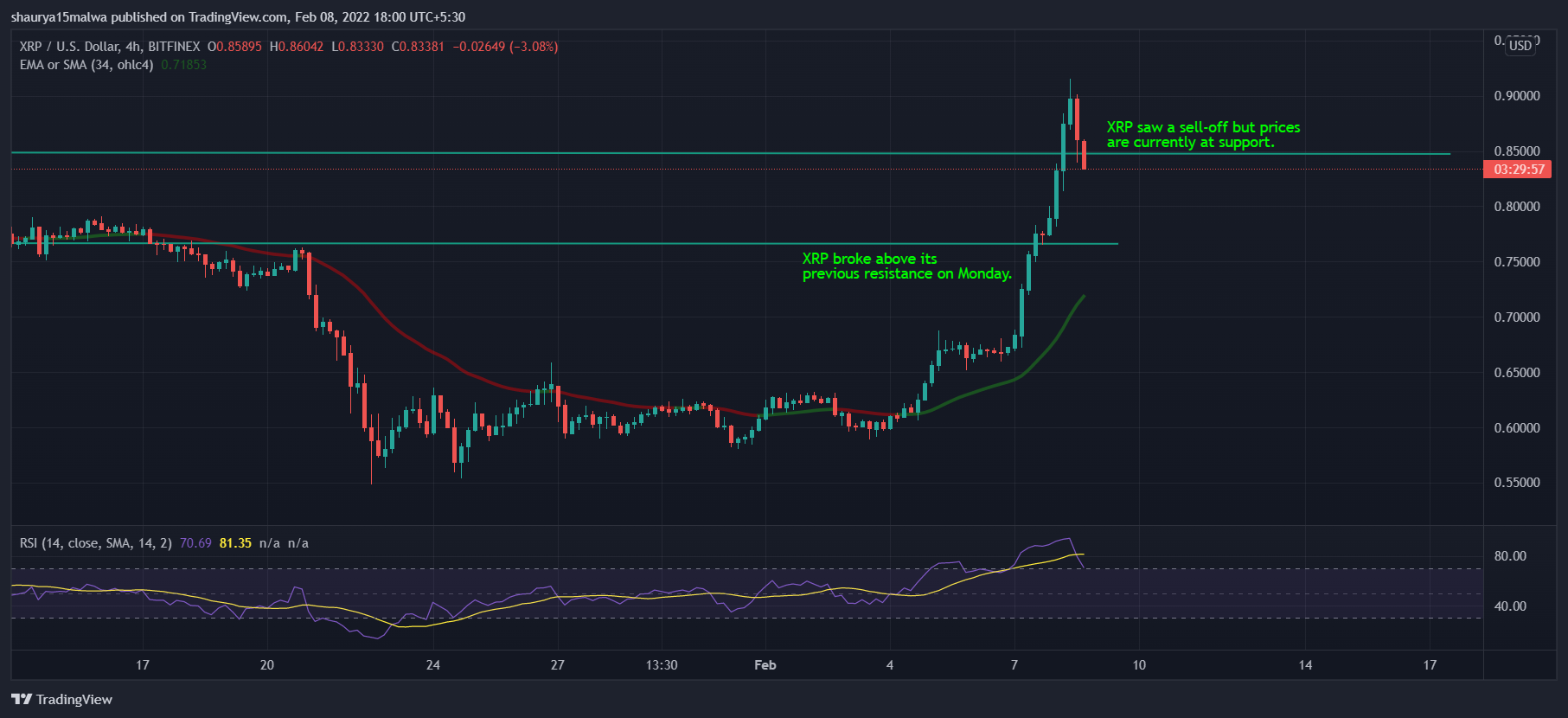
XRP Climbs 22% Amid Developments in Ripple v. SEC Case
The XRP token used in Ripple's payments network jumped as much as 22% in 24 hours to regain a $40 billion market capitalization on Tuesday after reports suggested a positive turn for the blockchain payments firm in its court battle with the U.S. Security and Exchange Commission (SEC).
The move made it the sixth-largest cryptocurrency, taking it above Cardano's ADA token and Solana's SOL.
The price reached as high as $0.91 in early Asian trading hours, a level last seen at the start of January. The token, though, fell back 5 cents to $0.86 at the time of writing. Further resistance exists at $1 if the price holds above current levels, while support at $0.80 exists in case XRP breaks below current levels.
A relative strength index (RSI) reading of 80, however, suggests a decline can be expected in the coming days. The RSI measures the magnitude of price changes over a certain time period. Readings above 70 are considered overbought, and those below 30 indicate an asset may be oversold.

XRP fell to support while RSI remained in overbought levels. (TradingView)
Positive SEC lawsuit proceedings
XRP's advance comes after U.S. District Judge Analisa Torres of the Southern District of New York ruled that sealed documents in Ripple's court battle with the SEC over whether the token was issued and sold as an unregistered security should be opened.
Ripple founder and Chairman Chris Larsen, who had attached two memos as sealed exhibits to his motion to dismiss the SEC case, previously argued that documents sent to prospective investors in 2012 didn't refer to XRP as investment contracts or securities. The memos are said to contain information from unidentified lawyers who concluded XRP tokens weren't securities. Last week, Torres asked for the documents to be unsealed later this month.
Ripple general counsel Stuart Alderoty explained the documents’ significance in a press statement. “They will show that in 2012 Ripple received a legal analysis that XRP was not an investment contract,” Alderoty said, adding that the company will “look forward to the public having access to these documents as we continue to vigorously defend this case.”
Analysts say positive proceedings affect prices
Some analysts say those developments suggest the case is coming to an end, which could cause further appreciation in XRP's price.
“We've seen in tech history that no matter the result of the trial, verdict or closed-door agreement, supporters regularly see the ending of a legal battle as a bullish sign,” James Wo, founder and CEO of crypto investment firm DFG, said in an email to CoinDesk. "This increase could be the beginning of a bullish period for XRP if indeed the long-lasting trial comes to an end in the upcoming months.”
Others, however, say XRP could lose favor among investors because newer payments tokens now exist in the market.
“Ripple's outlook remains questionable because market conditions have changed dramatically over the past few years,” Vladimir Gorbunov, CEO of Crypterium, told CoinDesk in a Telegram message. "A large number of companies making similar solutions to Ripple. However, Ripple is the most popular service in the segment of interbank transactions."
UPDATE (Feb. 8, 13:58 UTC): Rephrases first paragraph to identify XRP's use.
DISCLOSURE
The leader in news and information on cryptocurrency, digital assets and the future of money, CoinDesk is a media outlet that strives for the highest journalistic standards and abides by a strict set of editorial policies. CoinDesk is an independent operating subsidiary of Digital Currency Group, which invests in cryptocurrencies and blockchain startups. As part of their compensation, certain CoinDesk employees, including editorial employees, may receive exposure to DCG equity in the form of stock appreciation rights, which vest over a multi-year period. CoinDesk journalists are not allowed to purchase stock outright in DCG.


